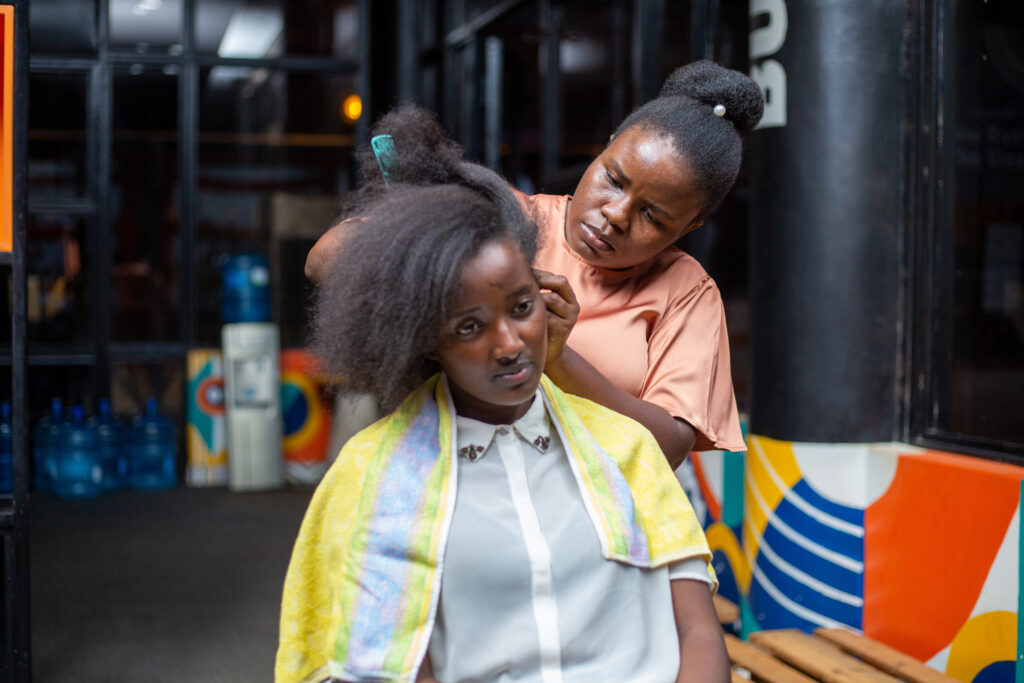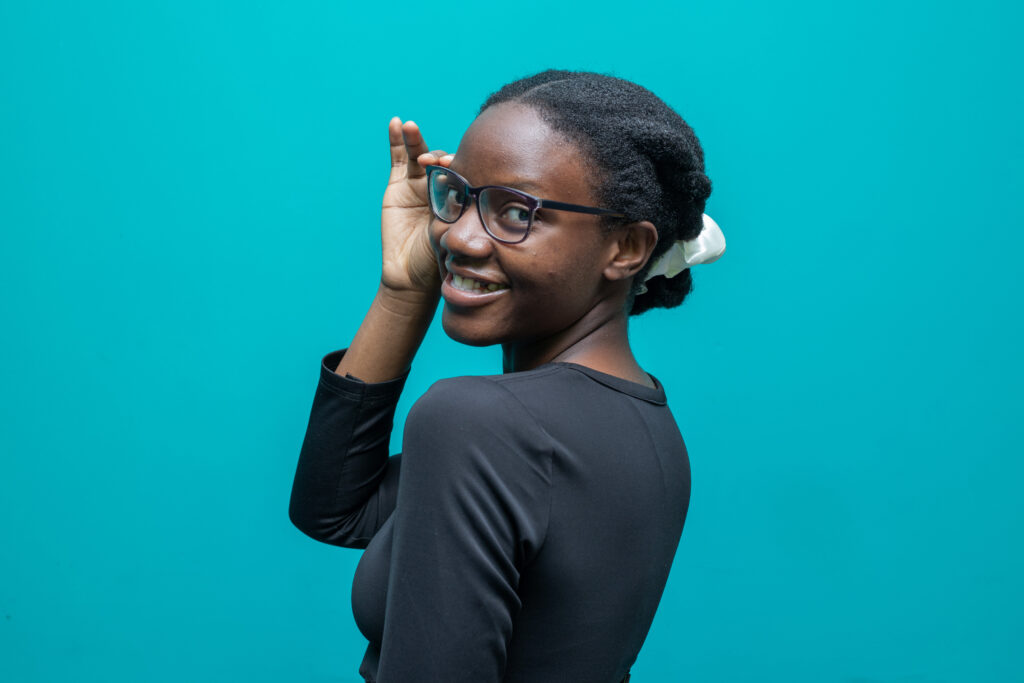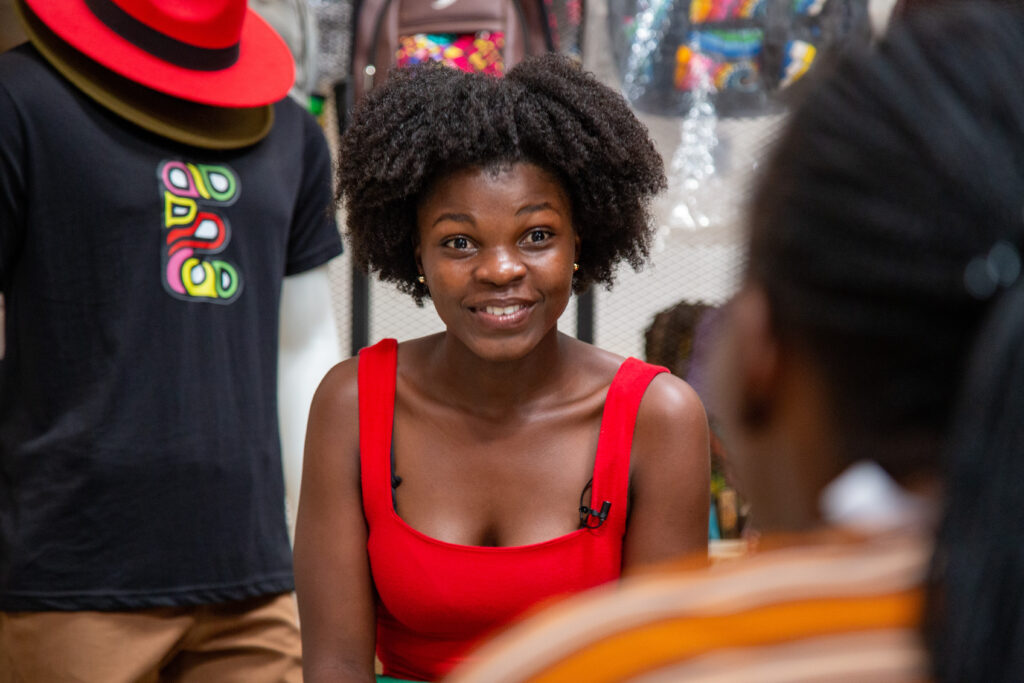Authenticity & Beauty:
Meet the Women Changing The African Hair Narrative In Uganda
Written by: Leticia Mmeeme. Photography by Barbra Leni and Richard Mugambe
Written by: Leticia Mmeeme. Photography by Barbra Leni and Richard Mugambe
Wearing an Afro is now a trend among Ugandan women. Those without the mass of kinky are opting for mini twists and cornrows, while others are trimming it short in its natural state.
Yet in the past decade, the most popular style was straight hair in which the hair texture is altered by perming and pressing it.
It was a preferred choice because most people “have grown up with a narrative that has been sold to them from movies, that for one to be beautiful, one must have the long straight semblance of blonde hair,” according to Jackline Mugamba a stylist who is changing minds about natural hair.
Mugamba, an accountant, started professional natural hair styling in 2021 using a mobile salon door-to-door model with two intentions: to teach most women about the relevance of maintaining their natural hair and debunk to the narratives around it.
“During the COVID-19 lockdown, my team and I started reaching out to women to style their natural hair from home. I believe we will see many women wearing their true natural crowns in the future,” she says looking at the rate of adaption from her efforts.
She founded ‘Jaqstyles’ a natural hair brand and social enterprise that uses training and rigorous social media campaigns to challenge stereotypes around hair and fashion in the East African country.
“Women need to understand their natural hair and the products they should use,” Mugamba says, justifying the use of social media and hair master classes her brand does for women.

Jackline Mugamba styles a client’s natural hair during a conversation with Solutions Now Africa. Photo by Barbra Leni.
On the other side of Kampala is Primah Birungi, also a kinky enthusiast whose hair stretches to about 15 inches long.
Birungi started her natural hair journey after a painful salon experience. She had gone to relax the hair and returned with a cracked hairline from the chemicals that were being used.
“I took control of my hair care and now use my platforms to empower other women to embrace their natural hair, proving that with the right knowledge, anyone can have healthy hair,” she explains
She is now using social media to inspire young women and girls to love their hair and stop the insane expenditure on imported hair cosmetics.
Uganda spent about 22 million in haircare product importation in the year 2022, according to datasets at the World Bank. This is largely synthetic hair additions and cosmetics.
However, with the new trend, and energy on African hair, the demand for locally-sourced natural hair care products has rised. Many women can access different natural hair products to help them manage their natural hair.

Primah Birungi shows off her hair in a photo pose after a chat with Solutions Now Africa. Photo by Richard Mugambe.
“In my opinion, the reason why synthetic hair has become a billion-dollar industry can largely be attributed to the mindset and self-esteem of Ugandan people,” says Ednah Nakasi, who has founded Melanitis an enterprise that deals in natural hair products in Uganda.
Nakasi has also published a book on natural hair management. Titled
“What Your Mom Didn’t Teach You About Your Natural Hair” the book is a tool for mindset change.
It emphasizes the importance of a mindset shift for children, mothers, and parents in general, teaching them how to manage their natural hair.
“Natural hair is an expression of your identity and authenticity. It signifies freedom and self-expression. It shows that you can accept me in my true form,” she explains.
She suggests that schools should include a section on natural hair in their curriculum, teaching children how to manage it.
She suggests that if students start learning in S1, by S4 they won’t spend as much time managing their hair making it easier for them in the future since they will now be saving more money.
“Our products, like avocado shampoo, deep hair conditioner, and leave-in conditioner, are designed to help people maintain and manage their hair,” she explains the hair products.

Ednah Nakasi is pioneering African Hair care products on the Uganda market. Photo by Richard Mugambe.
The rising Ugandan hair movement is not just about hairstyles but about reclaiming identity and encouraging self-expression.
For Nakasi, the market is ripe to turn African hair into an industry that could fetch its women thousands of jobs and dignified employment.
“With more companies producing natural hair care products, the future looks promising for the natural hair community in Uganda,” Nakasi says.
© 2022 - Media Challenge Initiative | All Rights Reserved .
© 2022 - Media Challenge Initiative | All Rights Reserved .